Supervisors: Dr Gary Beane and Dr Agustin Schiffrin
Progress in condensed matter physics is often driven by the discovery of novel materials. Topological materials are one such class of material, displaying unique quantum mechanical properties. Topological insulators (TIs) are a particular class of topological materials that are the subject of ongoing intense research interest. As they arise from a qualitatively new aspect of quantum mechanics – the topology of the Hilbert Space – they have opened an entirely new aspect of materials physics. Of particular interest is their ability to transport charge at very low resistance potentially leading to future applications in low-power electronic technologies.
The last 30 years has also seen significant developments in the fields of nonlinear optics, ultrafast photonics and pump-probe spectroscopy. These now allow us to access ultrafast dynamics of processes with real-time sub-picosecond resolution. Moreover, they also allow us to generate extremely high, transient fields.
The project here consists of probing and manipulating the topological phases of matter using quasi-single-cycle, ultrashort electromagnetic waveforms (e.g., a terahertz, infrared or optical pulse).
Systems of interest will consist of 2D and 3D topological insulators (e.g. Na3Bi, Bi2Se3), transition metal dichalcogenides (e.g. MoS2, WS2) and Dirac semimetals (e.g. graphene). These systems will be prepared via chemical vapour deposition (CVD) and molecular beam epitaxy (MBE) by our collaborators within the New Horizons Center.
The PhD candidate will gain expertise in experimental nonlinear optics, pump-probe spectroscopy, ultrafast lasers, condensed matter physics and surface science. The candidate will perform experiments, analyse and interpret experimental data, compare these experimental data with theoretical models (developed by theoretical collaborators (e.g. with expertise in density functional theory) or the PhD candidate her/himself, time permitting). They will conduct their own research project independently and will collaborate with other members of Schiffrin’s research group to manage the ultrafast laser system and acquire relevant expertise in the aforementioned fields of research. They will also have the opportunity to participate in experiments at collaborating international institutions. The PhD candidate will be supervised by Beane and Schiffrin, with help from Schiffrin’s research group members.
Applicants should hold an Honours or Master’s degree, and have a strong background in experimental physics.
If you have any questions, please contact Dr Gary Beane at gary.beane@monash.edu or Agustin Schiffrin at agustin.schiffrin@monash.edu
Interested applicants must meet Monash Universities PhD entry requirements. See following link: http://monash.edu/science/about/schools/physics/postgrad/apply-postgrad.html

